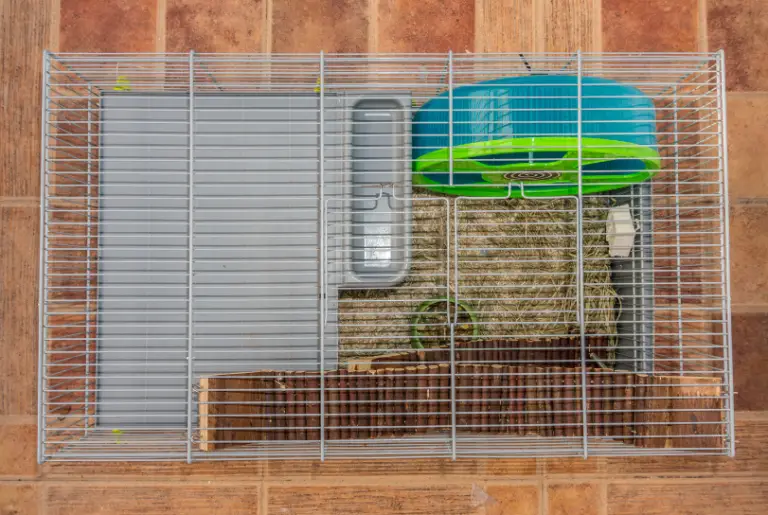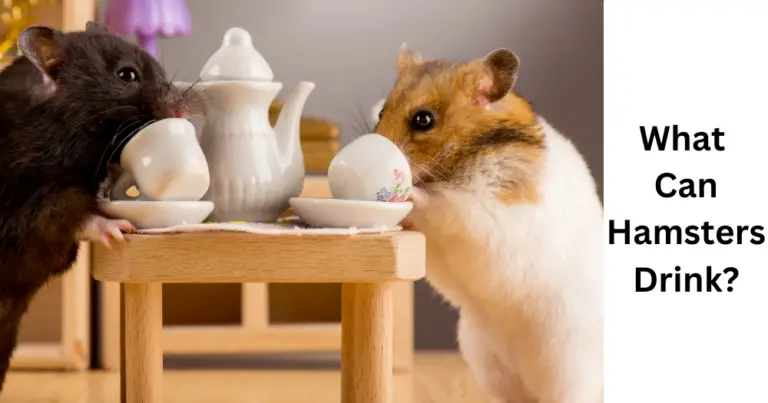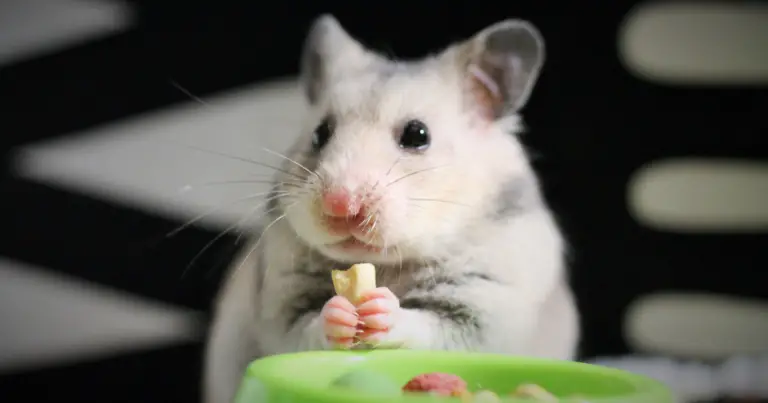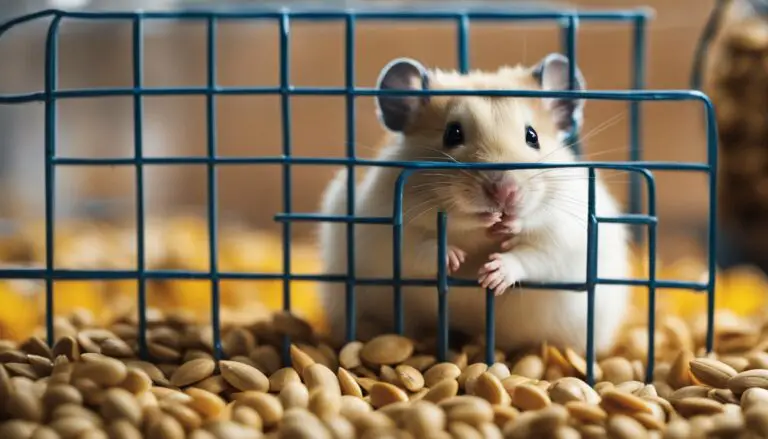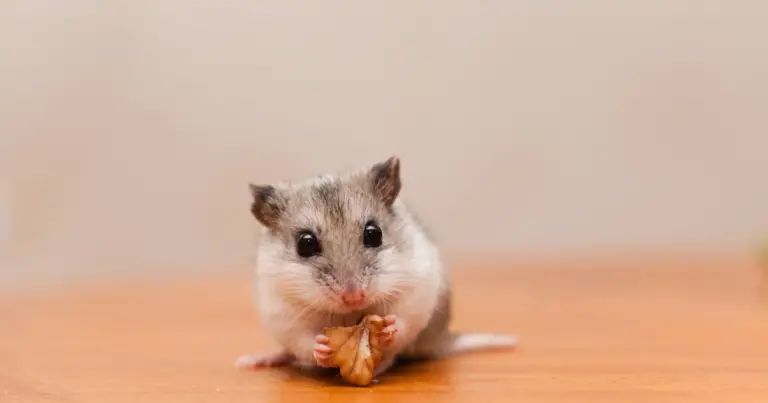Can Hamsters Eat Tangerines?

Have you ever wondered, “Can Hamsters Eat Tangerines”? As a loving pet owner, it’s only natural to be curious about what foods are safe and healthy for your little furry friend. Let’s dive into the topic and explore whether tangerines are good for hamsters.
Tangerines, just like many other fruits, are rich in vitamin C which is an essential nutrient for maintaining your hamster’s well-being. However, before introducing tangerines to your hamster’s diet, it’s crucial to understand the risks and potential downsides.
Hamsters have sensitive digestive systems and abrupt changes to their diet can lead to stomach upsets or diarrhea. Moreover, some sources suggest that tangerines are high in acid which can cause discomfort to your hamster’s stomach.
Contents
Table of Contents
Overview of the Tangerines
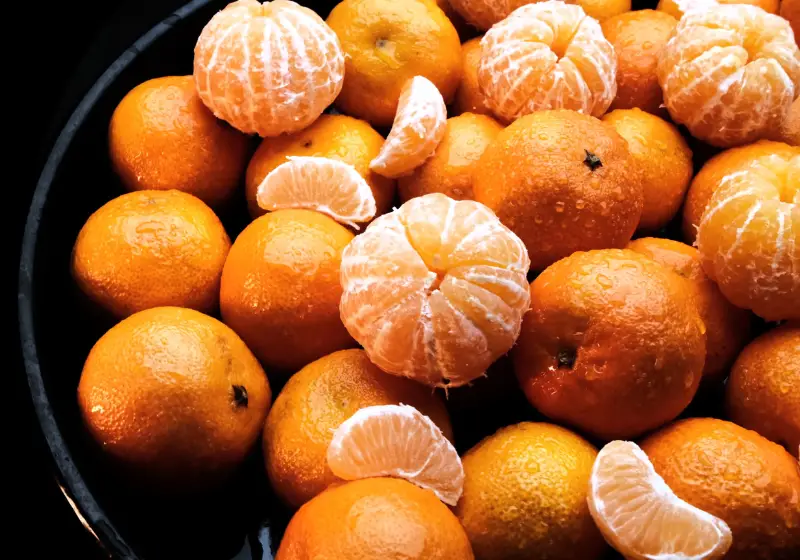
Tangerines are small, citrus fruits that resemble oranges in appearance and taste. They vary in color from orange to yellow-orange, and have a slightly sweet, tart flavor. You might often find tangerines as a delicious snack or a colorful addition to your fruit salad. Now, as a hamster owner, you might wonder if your furry friend can enjoy this tasty fruit as well.
Nutritional Content and Potential Benefits for Hamsters
Tangerines are known for their rich content of vitamins and minerals. They contain significant amounts of vitamin C, which is essential for the overall health of both humans and animals. Alongside vitamin C, tangerines also contain minerals like calcium and potassium, which contribute to a balanced diet. However, it’s crucial to keep in mind your hamster’s unique nutritional needs.
As opposed to tangerines, more suitable food items for hamsters include carrots, which are low in sugar and high in beneficial nutrients. Your hamster can potentially benefit from the following nutrients found in carrots:
- Vitamin A
- Vitamin K
- Potassium
- Fiber
When it comes to hamsters, their diet should consist primarily of pellets and some fresh fruits and vegetables. It’s essential to do proper research and consult with a vet before introducing new food items to your pet’s diet.
Can Hamsters Eat Tangerines?
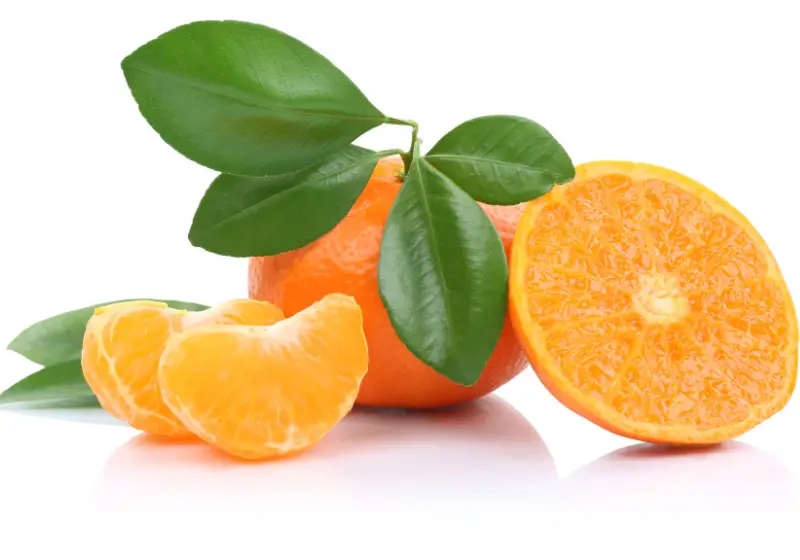
As a hamster owner, you might wonder if your little furball can enjoy some tangerines as a treat. According to the information found on Hi Hamsters and CanMyPetEatThis.com, tangerines are not safe for hamsters to eat. The high acidity and natural sugars found in this fruit can upset your hamster’s delicate digestive system, leading to potential health issues.
Discussing Potential Health Benefits or Risks
While tangerines are packed with vitamins and other nutrients that can be beneficial for humans, they pose some risks for hamsters. High acidity can lead to stomach problems and even diarrhea if consumed. Furthermore, the natural sugars in tangerines can contribute to obesity and diabetes in hamsters if given as a regular part of their diet.
Should This Food Be a Regular Part of the Diet or an Occasional Treat?
Considering the risks, it is best to avoid feeding your hamster tangerines altogether. While PetInfoHub suggests that it can be given as an occasional treat, you should focus on providing a well-rounded diet that caters to your hamster’s dietary needs.
To ensure a healthy diet for your hamster, here are some tips:
- Offer a mix of pellets and seed mixes specifically designed for hamsters at a pet store.
- Introduce small amounts of fresh fruits and vegetables that are safe for them. For example, carrots, apples (without seeds), and spinach.
- Avoid feeding them sugary or acidic fruits, such as tangerines, as well as high-fat and high-sugar treats.
By providing a balanced and nutritious diet, your hamster can enjoy a happy and healthy life.
Serving Suggestions
How to Properly Prepare and Serve the Food to a Hamster
To serve tangerines to your hamster, start by selecting a fresh fruit. Make sure to give it a good wash to remove any potential pesticides or residues. Remove the seeds and stringy fibers as they can pose a choking hazard to your tiny pet. After the tangerine is properly cleaned, remove the skin and cut it into small, manageable pieces that are easy for your hamster to handle and consume.
Recommended Portion Sizes
Hamsters should enjoy tangerines in moderation due to their natural sugars and potential digestive upset. Keep the serving size small—a pea-sized piece will be sufficient for your pet. Remember that treats like tangerines should not make up a large portion of your hamster’s diet, as they need a balanced diet to stay healthy.
Frequency of Feeding This Particular Food
As tangerines are high in natural sugars and can potentially cause digestive issues, it’s best to serve them as an occasional treat instead of a daily staple. Feeding tangerines to your hamster once or twice a week should be sufficient. This frequency helps maintain the balance in their diet, preventing health issues related to overfeeding sugary or acidic foods.
By following these serving suggestions, you’ll be able to provide your hamster with a tasty but occasional treat while keeping their overall diet in check. Remember, moderation is key when it comes to feeding fresh fruits like tangerines to your furry friend.
Potential Risks and Considerations

When considering whether to introduce tangerines into your hamster’s diet, it is essential to be aware of the potential health risks and side effects related to this fruit. While tangerines are rich in vitamin C, which is beneficial for hamsters, they are also highly acidic, which can cause digestive upset. You should keep citrus fruits to a minimum in their diet, or opt for other fruits and vegetables low in acid1.
Moreover, a hamster’s sensitive digestive system means that sudden changes in their diet can lead to stomach upsets or diarrhea2. So, if you decide to give tangerines as an occasional treat, remember to introduce them gradually and in small quantities.
Specific Concerns Related to the Food (e.g., Sugar Content, Choking Hazards)
There are a few specific concerns when it comes to giving your hamster tangerines. Firstly, be cautious of the sugar content found in tangerines. Like any sweet fruit, tangerines contain natural sugars, which can be harmful if consumed in large amounts. Hamsters are prone to diabetes, so feeding them sugary treats regularly can increase their risk of developing this health issue.
Another significant concern is choking hazards. Tangerines contain seeds and fibers, which can pose as a choking hazard for your tiny pet1. Hamsters have delicate throats, and ingesting large pieces or seeds can lead to choking or intestinal blockages. Make sure to remove seeds and cut the fruit into small, manageable pieces when offering it to your hamster as a treat.
To summarize, tangerines can be given to hamsters, but only in moderation and with caution. When deciding whether to offer your pet tangerines, consider their potential health risks and side effects, such as acid content, sugar content, and choking hazards. Always consult with a veterinarian if you are unsure about introducing any food to your pet’s diet.
Frequently Asked Questions

Can hamsters eat oranges?
Hamsters should avoid consuming oranges as they are citrus fruits with high acidity, which can upset their sensitive stomachs and lead to health issues like diarrhea. It is best to provide them with alternative fruits that are safe for consumption.
What fruits are safe for hamsters?
There are several fruits that are safe and beneficial for hamsters, including apples (without seeds), blueberries, strawberries, and bananas. These fruits can be given in small portions as occasional treats, ensuring that their primary diet consists of hamster-specific food pellets.
Are citrus fruits harmful to hamsters?
Yes, citrus fruits like oranges, tangerines, and lemons can be harmful to hamsters. Their high acidity and natural sugar content can upset a hamster’s delicate digestive system, potentially leading to various health issues, such as diarrhea or stomach upsets.
How often should hamsters eat fruits?
Fruits should be given to your hamster only as occasional treats, not as a regular part of their diet. Offering small portions once or twice a week should be sufficient, as an excess of fruits can cause digestive issues or imbalance their nutritional intake.
What fruits should be avoided for hamsters?
Besides citrus fruits, you should also avoid giving your hamster fruits with high sugar content, such as grapes, raisins, or cherries. Furthermore, remove any seeds or pits, as they can be toxic or pose a choking hazard.
What is the ideal hamster diet?
A balanced hamster diet consists mainly of hamster-specific food pellets that provide the necessary nutrients, vitamins, and minerals. In addition, you can supplement their diet with small amounts of fresh vegetables, leafy greens, and occasional fruit treats. Always ensure that their diet meets the specific needs of your hamster’s breed.

